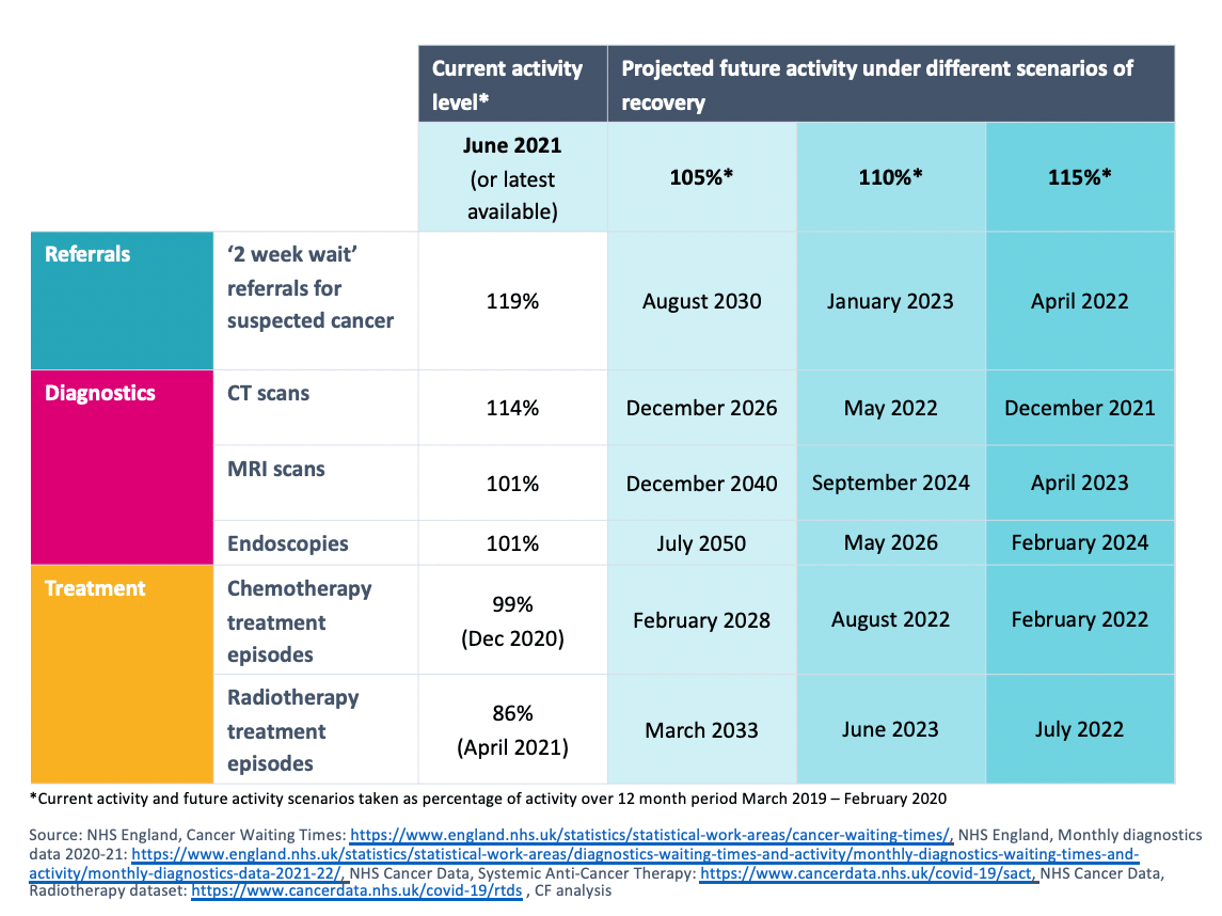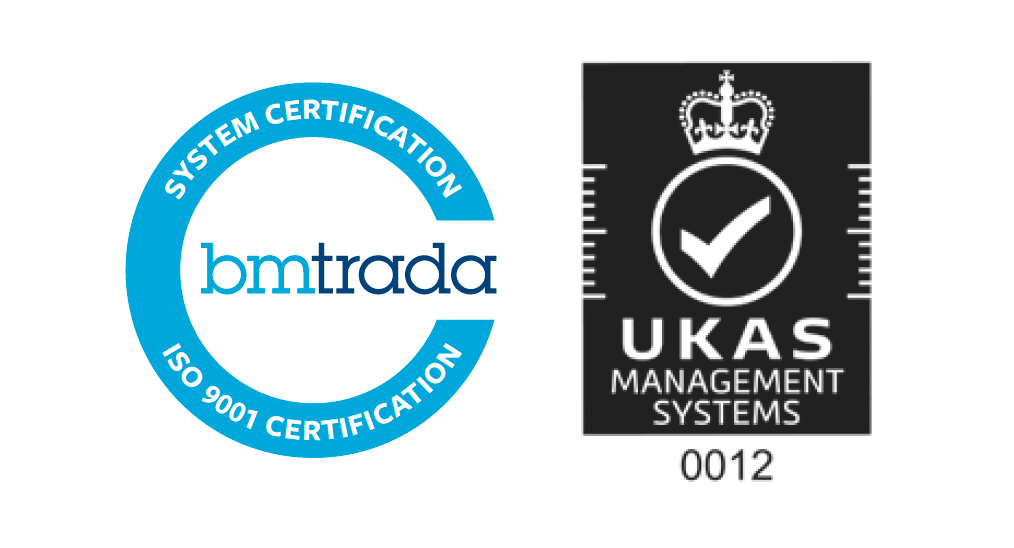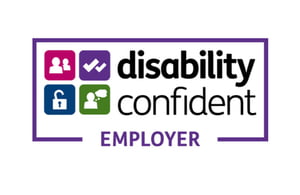We previously explored in some detail the impact of the pandemic on cancer services across the pathway, investigating the extent of the disruption and estimating the consequences on cancer outcomes, from stage of diagnosis to survival rates, to excess deaths.
The looming elective backlog has been well talked about, but we are yet to address the hidden demand from the patients who did not present and are yet to come forward for cancer investigations, diagnostics and treatments.
In our latest report, working with the IPPR, we have modelled different scenarios of activity to estimate how long it would take to work through the outstanding cumulative activity missed over the course of the pandemic.
We found that the NHS would need to run at an ambitious 110% of pre-pandemic activity to clear all the backlog and missing patient activity by mid-2026 assuming an unchanged rate of cancer prevalence and management.
In this report, we explore in more detail the most prominent challenges in achieving this ambition, and offer recommendations on how to overcome them, namely addressing capacity and workforce constraints, making better use of digital to streamline the cancer pathway, and appropriately adjusting infection prevention and control measures.
The full IPPR report on building cancer recovery can be found here.




